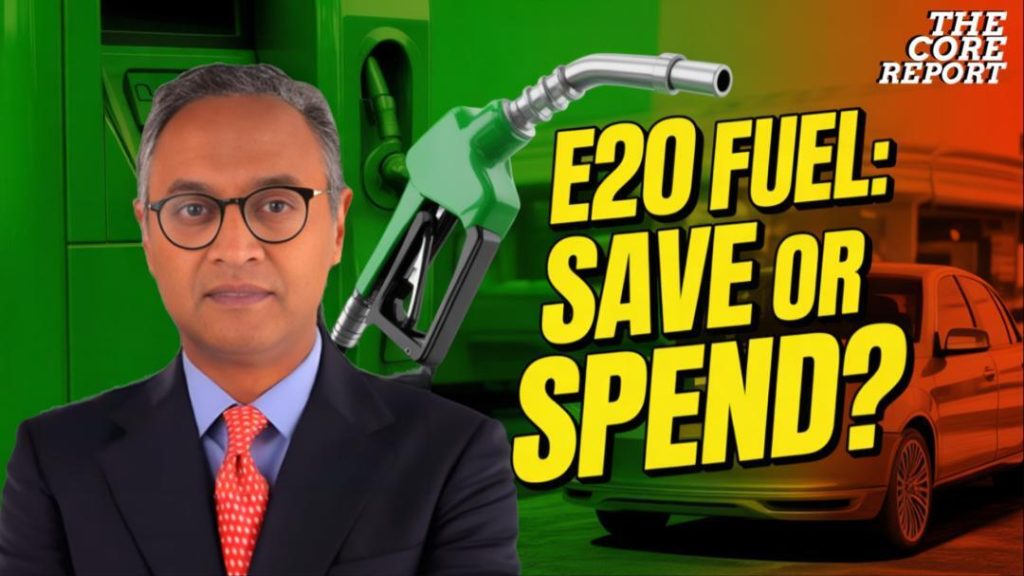
E20 Fuel in India: Benefits, Risks & What Vehicle Owners Must Know
The Indian government has been pushing for the adoption of E20, a fuel blend that combines 20% ethanol with 80% petrol, to reduce carbon emissions, boost energy security, and support farmers. As the country aims to reduce its reliance on fossil fuels and meet its climate change commitments, the introduction of E20 fuel is a significant step towards a more sustainable future. However, vehicle owners must be aware of the benefits, risks, and implications of this new fuel blend on their vehicles.
Benefits of E20 Fuel
The introduction of E20 fuel in India is expected to have several benefits, including:
- Reduced Carbon Emissions: E20 fuel emits 20-30% less carbon dioxide than regular petrol, making it a more environmentally friendly option.
- Boost to Energy Security: India is the second-largest consumer of fuel in the world, and the introduction of E20 fuel is expected to reduce its dependence on imported oil.
- Support to Farmers: The use of ethanol in E20 fuel is expected to provide a new market for Indian farmers, creating employment opportunities and reducing the country’s reliance on imported ethanol.
- Improved Fuel Efficiency: Studies have shown that vehicles running on E20 fuel can achieve better fuel efficiency, leading to cost savings for vehicle owners.
Risks of E20 Fuel
While the introduction of E20 fuel has several benefits, it also poses some risks, particularly for older vehicles that are not designed to run on this new fuel blend. Some of the risks include:
- Engine Wear: E20 fuel can be more corrosive than regular petrol, which can lead to engine wear and tear, potentially reducing the lifespan of vehicles.
- Fuel System Corrosion: The ethanol content in E20 fuel can corrode fuel system components, leading to costly repairs.
- Mileage Loss: Older vehicles may experience a loss of mileage when running on E20 fuel, which can lead to increased fuel costs.
- Compatibility Issues: Not all vehicles are designed to run on E20 fuel, which can lead to compatibility issues and potential engine damage.
What Vehicle Owners Must Know
To minimize the risks associated with E20 fuel, vehicle owners must take certain precautions. Some of the things they must know include:
- Check Your Vehicle’s Compatibility: Vehicle owners must check their vehicle’s compatibility with E20 fuel before switching to this new fuel blend.
- Get Your Vehicle Serviced: Vehicle owners must ensure that their vehicle is serviced regularly to minimize the risk of engine wear and fuel system corrosion.
- Monitor Your Vehicle’s Performance: Vehicle owners must monitor their vehicle’s performance and report any issues to their dealer or mechanic.
- Plan for Maintenance: Vehicle owners must plan for regular maintenance to ensure that their vehicle continues to run smoothly and efficiently.
Government Initiatives
The Indian government has taken several initiatives to promote the adoption of E20 fuel, including:
- New Vehicle Mandate: By 2025, all new vehicles will be E20-compliant, easing adaptation concerns.
- Subsidies for Farmers: The government has announced subsidies for farmers to encourage them to produce ethanol for blending with petrol.
- Incentives for Vehicle Manufacturers: The government has offered incentives to vehicle manufacturers to encourage them to produce E20-compliant vehicles.
Conclusion
The introduction of E20 fuel in India is a significant step towards reducing carbon emissions, boosting energy security, and supporting farmers. While there are some risks associated with this new fuel blend, vehicle owners can minimize these risks by taking certain precautions. As the government continues to promote the adoption of E20 fuel, it is essential that vehicle owners are aware of the benefits, risks, and implications of this new fuel blend on their vehicles.
News Source:
https://youtu.be/zM_EyWPyliQ






